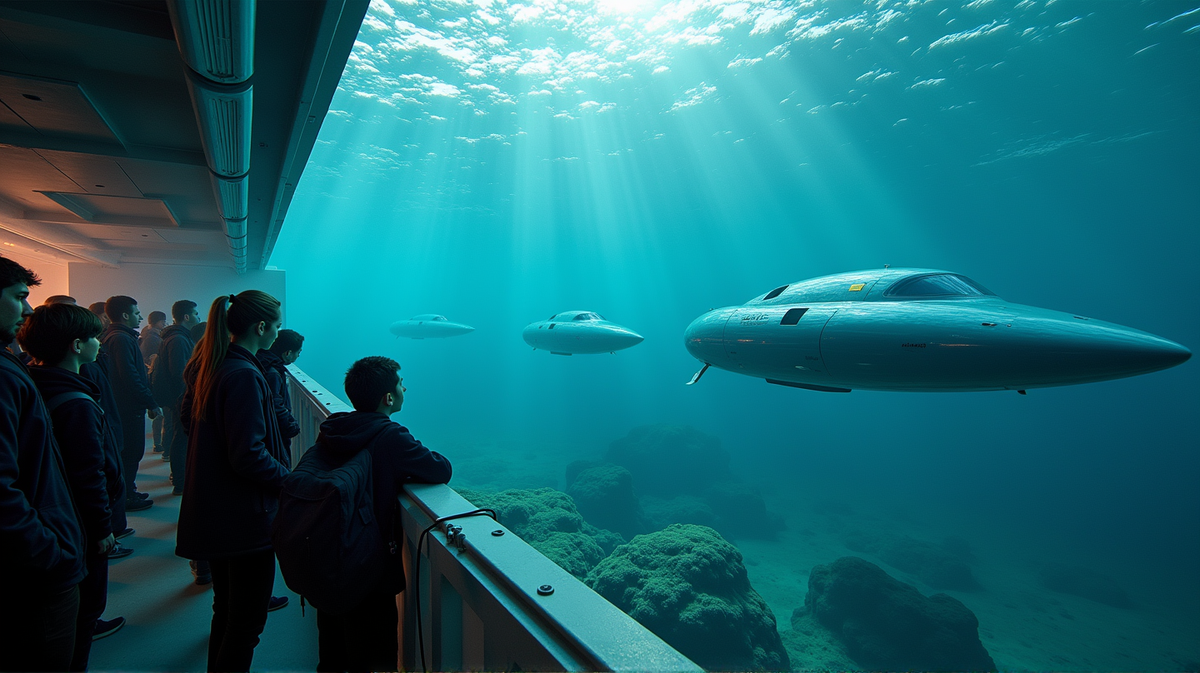Pioneering Marine Tech Collaboration: NMC Joins Forces with GVSU and Notre Dame
Explore how NMC, GVSU, and Notre Dame's groundbreaking partnership is transforming marine technology education with artificial intelligence and autonomous underwater vehicles.

In a bold move toward the forefront of marine technology education, Northwestern Michigan College (NMC) is partnering with Grand Valley State University (GVSU) and the University of Notre Dame. This collaboration aims to establish an innovative training program focusing on deploying autonomous underwater vehicles (AUVs) facilitated by artificial intelligence (AI).
A New Era of Marine Exploration
The alliance was enabled through a three-year, $873,634 National Science Foundation (NSF) grant. The initiative signals a new chapter for NMC, significantly expanding its technological repertoire, as highlighted by GLWSI Director John Lutchko. According to The Ticker, this program charters new waters, equipping NMC to leap from traditional remotely operated vehicles to advanced autonomous systems.
Bridging Academic Divides
Stuart Jones, GVSU’s Annis Water Resources Institute executive director, noted that this partnership fills a vital geographic and academic gap, particularly as Traverse City inaugurates its Freshwater Research and Innovation Center (FRIC). The NSF grant from the ‘Experiential Learning in Emerging and Novel Technologies’ (ExLENT) program emphasizes transformative educational practices and the employment of AUVs and AI in marine studies.
Harnessing the Power of AI
Lutchko underscores that the curriculum’s inclusion of AUVs represents multiple novelties for GLWSI. Traditionally reliant on external demonstrations, this initiative now allows students comprehensive exposure to AUV technology. Additionally, AI integration promises heightened operational efficacy, enabling dynamic adjustments based on real-time environmental data and offering more intricate navigational commands.
Jones elaborates that AI’s capabilities permit AUVs to autonomously modify missions, offering examples like pollution tracking akin to a bloodhound. This versatility underscores the program’s ambition to redefine marine education.
United Expertise and Vision
Each partner contributes distinct expertise to the venture. NMC, offering direct access to the Great Lakes and significant marine technology prowess, collaborates with GVSU’s esteemed aquatic ecology program and Notre Dame’s AI specialization. This confluence of skills is poised to yield a pioneering six-week curriculum, blending online learning with intensive hands-on experience.
A Legacy Beyond the Grant
Post-grant, the program’s legacy lies in the enduring assets NMC will retain, including cutting-edge AUVs. Lutchko speculates that not only will this initiative enhance NMC’s academic offerings but its NSF backing will amplify the institution’s prestige.
The collaboration opens new networks, most notably with Notre Dame, expanding NMC’s academic connections and reinforcing its position in the marine technology sector.
In summary, this groundbreaking project is not just an educational milestone but a pivotal moment in marine technology, poised to influence research and industry standards profoundly.





